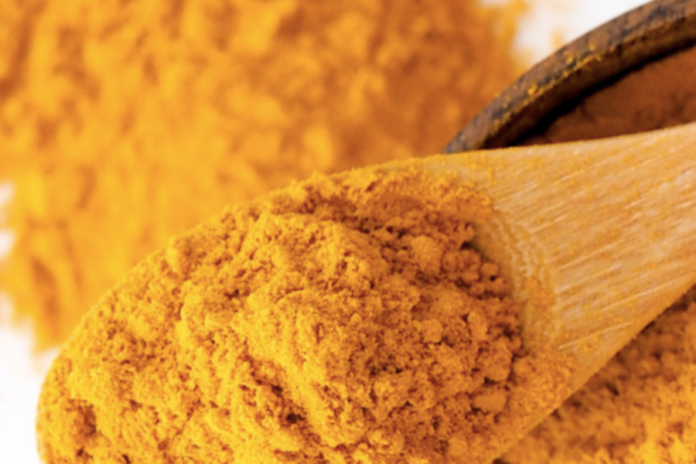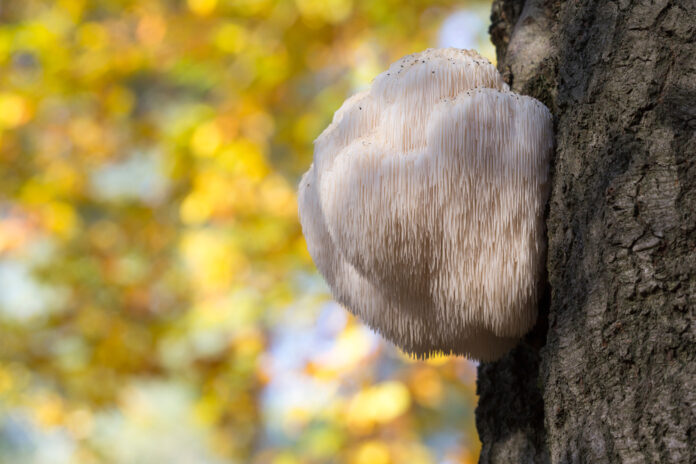Turmeric — a supplement worth considering for your dog

A spice renowned for its color and flavor, a turmeric supplement offers noteworthy health benefits to dogs as well as humans.
If you are a fan of curry, you have probably heard of turmeric. Also referred to as curcumin, which refers to the key active ingredient that gives this spice its distinct color and flavor, turmeric is a plant in the ginger family that is native to South Asia. In India, this centuries-old plant is commonly used for skin and digestive issues as well as aches and pains. Turmeric offers a variety of wellness benefits to dogs as well as humans, making it a supplement that’s definitely worth consideration.
TURMERIC’S POTENTIAL HEALING
BENEFITS
Turmeric has been recommended for reducing chronic inflammation in humans and dogs1 and may help canines with mobility issues associated with aging or disease. The same article1 cited Dr. Randy J. Horwitz, medical director the Arizona Center of Integrative Medicine and assistant professor of clinical medicine at the University of Arizona, as saying that turmeric is “one the most potent natural anti-inflammatories available”.
Turmeric can also help with anxiety and senility, and may even have a positive effect on some cancers. Although there is so far very little research on the use of turmeric in dogs, one study looked at the effects of turmeric root and rosemary leaf on canine cancer cell growth in cell cultures.2 While additional research is needed, the study suggested that turmeric root and rosemary leaf had a synergistic effect in killing certain tumor cell lines.
Another author has suggested that the heat used in producing kibble generates carcinogenic chemical compounds, which turmeric supplements can counteract.3
Hint: It’s safe to give turmeric to dogs in reasonable doses; in fact, it is often added to kibble to enhance its color.
WHAT ARE THE POSSIBLE SIDE EFFECTS OF TURMERIC?
Adverse side effects are uncommon when turmeric is given in appropriate amounts. If they do occur, they may include gallbladder issues, dizziness, bruising, upset stomach and/or nausea, and iron deficiency.
Turmeric stimulates gallbladder flow by increasing the organ’s contractions; it may be beneficial for some gallbladder diseases but should be avoided if there is a history or potential for gallstones. Turmeric may also delay blood clotting and should therefore be used with caution in animals with a history of bleeding disorders. Reports have indicated that turmeric may be beneficial for people with diabetes by stabilizing blood glucose levels; if your dog is diabetic, however, talk to your veterinarian before adding this (or any) supplements to his diet.
Hint: Iron deficiency is associated with the binding of ferric iron to turmeric in the gut when high doses are given.
HOW MUCH TURMERIC SHOULD I GIVE MY DOG?
As with most supplements, the dosage of turmeric a dog should receive depends on his or her weight. Obviously, there is no one-size-fits-all, given that different breeds can weigh as little as a pound or two up to 150 pounds or more.
I generally recommend giving turmeric powder to dogs because you can measure out exactly how much he should receive. Turmeric capsules give you less ability to administer a specific amount.
Turmeric powder can be made into a paste (mixed with lecithin, MCT oil, or olive oil) or added to your dog’s food. If you are adding it to dry kibble, moisten the kibble first and then mix the powder in.
Following are the recommended guidelines for adding a powdered form of turmeric to your dog’s food, up to three times a day. I would suggest you start with one or two doses at the low end, and increase them once you find your dog tolerates it.
- 1-10 lbs: 1/16 to 1/8 tsp
- 10-20 lbs: 1/8 tsp to 1⁄4 tsp
- 20-50 lbs: 1⁄4 tsp. to 1 tsp
- 50-100 lbs: 1 tsp. to 2 tsp
- More than 100 lbs: 2 tsp
Hint: Most turmeric capsules have been formulated for humans and may contain higher amounts of turmeric than dogs can typically tolerate.
While more research needs to be done on the benefits of turmeric in dogs, it’s certainly a supplement worth adding to your canine companion’s health regime. Talk to your holistic or integrative veterinarian about what turmeric might be able to do for your dog, especially if he’s older and/or has mobility issues, or is undergoing treatment for cancer.
References:
- Waggoner LL: Spice it up! If your dog suffers from chronic inflammation or stiffness, try adding turmeric to his diet, Herbal Medicine, Dec 2014
- Levine CB, Bayle J, Biourge V, And Wakshlag JJ: Cellular effects of turmeric root and rosemary leaf extract on canine neoplastic cell lines, BMC Veterinary Research 2017: 13:388
- Tweed V: Pet supplement guide: Essential nutrients for optimal health in cats and dogs of all ages. Natural Pet, Nutrition for dogs and cats. March 2014
- Smith TJ, Ashar BH: Iron deficiency anemia due to high-dose turmeric. Cureus 2019:11:1; e3858



